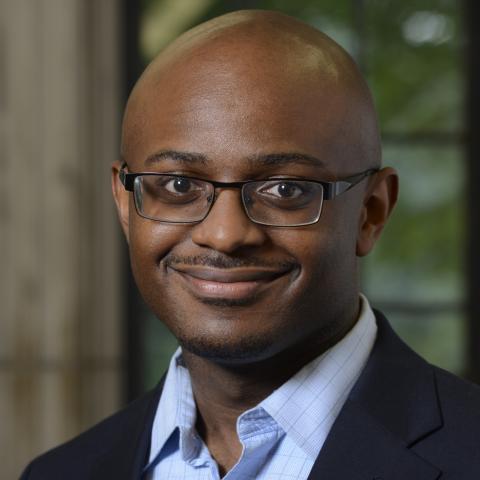
Kai Parker

Education
- Ph.D., History, University of Chicago
- M.A., History, University of Chicago
- A.B., History and Africana Studies, Bowdoin College
Research Interests
A historian of African American religion, Kai Parker examines how apocalyptic and messianic strains of Black faith have inspired Black social movements, cultural production, and intellectual thought while illuminating the affinities and tensions between conceptions of redemption and freedom. Professor Parker studies the religious history of urban inequality, Ethiopianism, colonial and anticolonial missiology, theologies of prison reform and prison abolition, and the intersection of religion, imperialism, and social theory. His research combines the archival methods of history with conceptual insights drawn from theology as well as Black studies’ engagements with phenomenology.
Professor Parker's book, City of Black Souls: Chicago, Ethiopianism, and the Black Apocalyptic Imagination (University of Pennsylvania Press, 2025) explores how from the late 19th to the mid-20th century, African American Protestants in Chicago drew from biblical representations of Ethiopia as well as Coptic and Ethiopian Orthodox traditions and worked with West African Protestants to create a transnational religious movement against imperialism. He also has published or forthcoming work on subjects such as the impact of casteism in India on Black Gandhian nonviolent civil rights activism, messianism and charismatic authority in the Martin Luther King, Jr.-led Chicago Freedom Movement, and how Black gospel music critically revised prophetic religion to reckon with the emerging "urban crisis" during the civil rights era. Professor Parker taught courses on Black history, Black religion, and Black studies at Stateville prison near Chicago as a member of the Prison + Neighborhood Arts/Education Project.
Teaching
- The Black Church
- Black Religion and the Criminal Justice System
- African American Religious History (grad seminar)
- Historiography Seminar in U.S. Religions (grad seminar)
- Religion, Race, and Difference in America
- Black Apocalyptic Theory (grad tutorial)